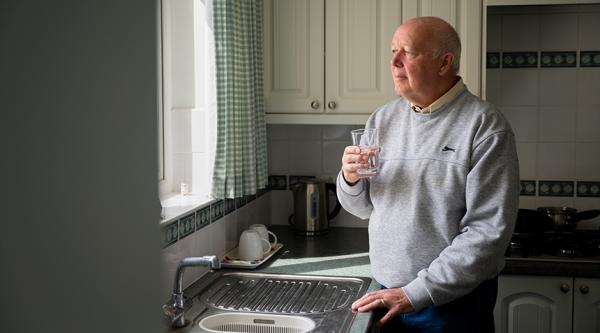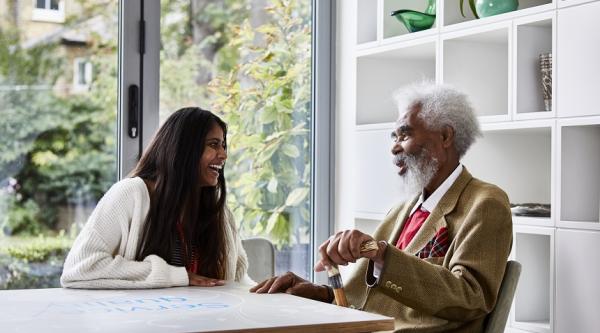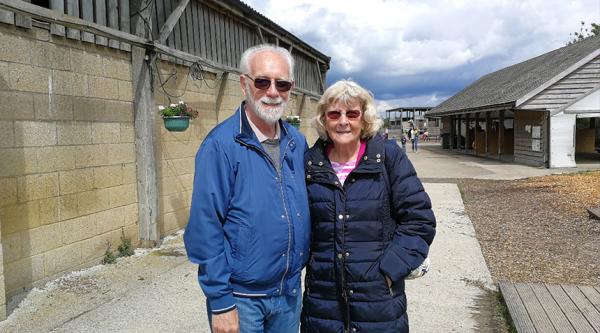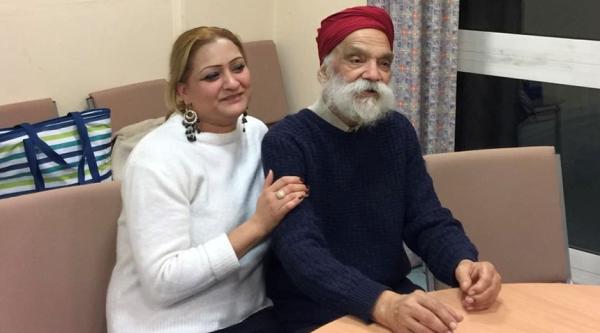Rebuilding an active life after dementia diagnosis
From a 2012 issue of our Dementia Together magazine, find out how one man rebuilt his life after a diagnosis.
Although he now leads an active life with many interests, the road to Mick Levesque being diagnosed with dementia was a distressing one. Fiona Madden finds out about his journey.
Eight years ago when 69-year old Mick Levesque from Portsmouth walked out of his job as a Ministry of Defence dockyard supervisor due to mounting stress, his loved ones started to think that something was very wrong.
He began exhibiting symptoms of depression and saw a psychiatrist after taking sick leave from work for two months, which included taking a memory test. The conclusion was that he was suffering from stress and depression.
An upsetting incident then followed where he was found on a busy motorway by a car recovery service and later diagnosed with having had a brain haemorrhage.
No recollection
His wife of 35 years, Maureen, describes the incident where things began to spiral,
'He had a headache the night before and was meant to go to Portsmouth Council for a planning application meeting the following day.
'When I came home at lunchtime I found his medication all over the floor and when I came back that night he wasn't there. I had a phone call from the car recovery people saying they had found him on the M3 and that he'd had an accident, so we took him to Basingstoke hospital and found out he had had a brain haemorrhage.'
Later Maureen, who is 62, discovered that Mick had driven from Portsmouth to London and back but worryingly had no recollection of the incident. After taking early retirement he began to have epileptic fits and over time started to verbally lash out at her. He became obsessed with the idea that she was having affairs, even threatening to kill her.
Six months after being admitted to a specialist unit at a Southsea hospital for care he was referred by a neurologist to be tested for Alzheimer's.
Short tempered
Mick describes his feelings of frustration before being diagnosed,
'I couldn't understand what was going on. I was just getting angry all the time and lost interest in everything.
'I found not knowing very hard and I was very short tempered. If I was doing any sort of work with cheque books, things like that used to get me very angry and frustrated very quickly.'
He is currently on nine different types of medication, including Aricept (donepezil), and has to take the tablets that Maureen says 'keep him going' 16 times a day.
Mick's issues at the moment include lack of sleep - he finds he normally goes to bed at 10pm but wakes up at about 3am - and visual hallucintions.
He says,
'I was asleep one afternoon and saw a lady standing in front of me when I awoke and thought it was Maureen. When I looked again she wasn't there - it looked like a sort of ghost. I've also seen a friend of mine in America come through the wall. It's like visions, none of them speak. I find it very strange.'
Singing and dancing
Although becoming confused and disorientated in crowds, Mick still has many interests including going to his local Patey day centre, which provides day activities and care for people living with dementia. He also takes the dog for walks, enjoys his local Singing for the Brain group and has recently revisited a shared passion for ballroom dancing with Maureen.
He says,
'We used to dance up until about seven years ago and then we stopped because I had an epileptic fit. We more or less stopped altogether because I was losing the plot.
'But for the past three months, we've found someone prepared to teach people with dementia. She's very good and patient, and we've talked to other people and their carers and they've started coming too.'
Memory Walk
The Levesques, who have two children, launched Alzheimer's Society's Portsmouth Memory Walk in September and are keen to raise awareness of dementia and drum up support for local services.
Maureen says,
'I've found a problem with respite. I did have a place once for him to go but now there is nowhere suitable for him. He can go into council places but the people there are too advanced in their condition.'
At the time of going to press Mick and Maureen were preparing for the Portsmouth Memory Walk, with Mick saying,
'I'm determined to go as far as I can. It's a lovely walk from the common up to the dockland.'
To find out more about hallucinations and dementia you can download our Hallucinations in people with dementia factsheet (520) or call 01628 529240 to request a copy.








